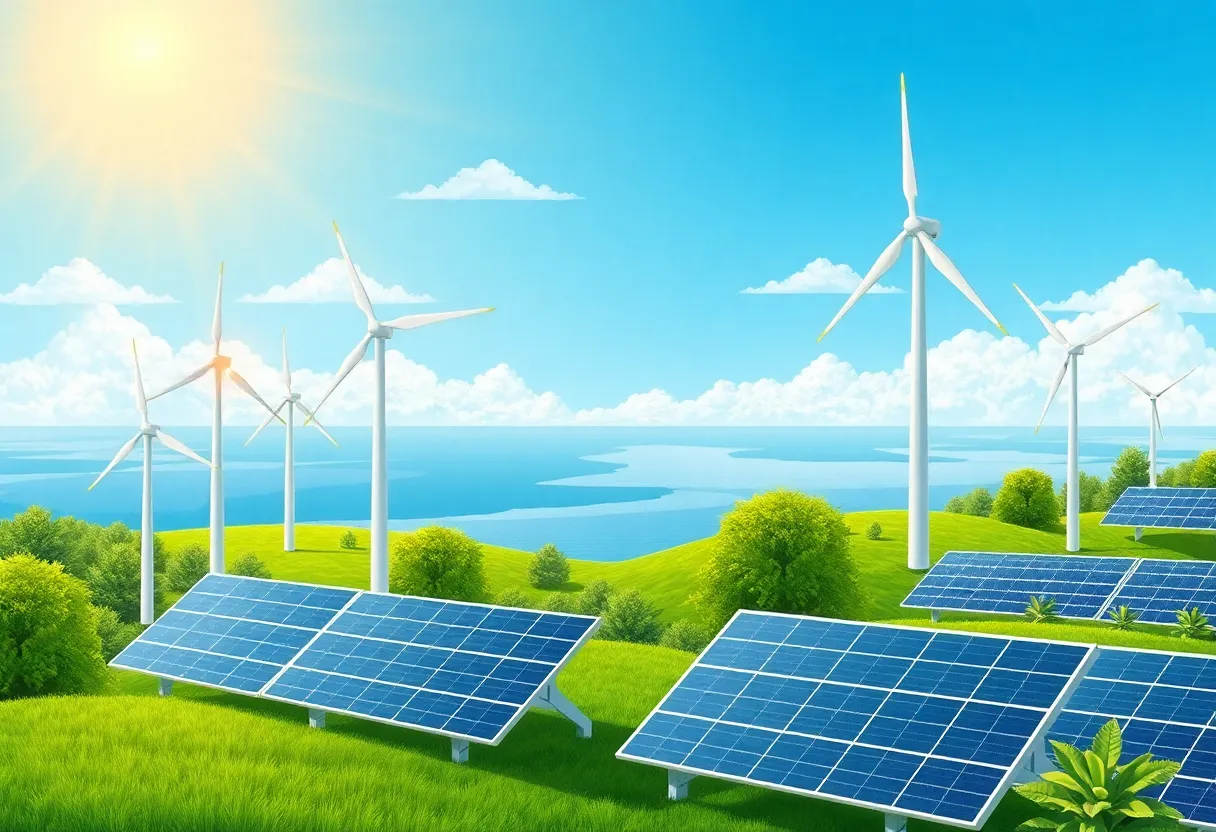News Summary
Michigan’s energy companies have been granted $14.04 billion in loans from the U.S. Department of Energy for green energy projects. This announcement comes as residents face rising energy bills due to significant rate hikes initiated by the Michigan Public Service Commission since 2013. While the funding aims at promoting clean energy, concerns about potential fraud, favoritism, and upcoming rate increases challenge its implications for consumers. The situation reflects a larger trend toward greener energy but raises crucial questions about its impact on homeowners in Michigan.
Detroit, Michigan: $14 Billion Windfall for Energy Firms Amid Controversy
In a move that is sending shockwaves across the Great Lakes State, Michigan’s energy companies now hold a whopping $14.04 billion in loans from the U.S. Department of Energy for green energy projects. This considerable funding, announced on January 16, comes at a time when many residents are grappling with rising energy bills following a series of state-sanctioned rate hikes.
Fueling Controversy with Rate Hikes
Since 2013, Michigan homeowners have faced a staggering $1.9 billion in rate hikes authorized by the Michigan Public Service Commission (MPSC). Following this latest federal funding announcement, significant questions linger about the implications for consumers and the decision-making process behind these loans. The MPSC has given the green light to 17 out of 18 requests for rate increases as of early 2023, allowing companies like DTE Energy and CMS Energy to crank up prices for homeowners needing heat during chilly winter months.
Government Mandates and Energy Transition
Adding fuel to the fire, Governor Gretchen Whitmer has mandated that all state energy companies become purely reliant on clean energy by the time 2040 rolls around. This ambitious goal has led DTE Energy to secure $8.81 billion from two loans, while CMS Energy will receive $5.23 billion in funding. With these loans, energy companies are expected to benefit from lower interest rates, translating into savings for consumers down the line. CMS Energy confirmed that these funds will go toward capital projects to prevent higher interest debt, which could make a positive difference in household energy costs.
New Charges on the Horizon
However, not all residents are enthusiastic about these developments. DTE Energy customers can expect a rate hike of $217.38 million beginning on January 23, 2024. This follows a series of other approved increases, including $368 million for electric rates just a month prior. How these hefty numbers will impact homeowners at a time when budgets are already tight is a topic of concern across the state.
Criticism and Claims of Conflict
Though the green energy initiatives aim to reduce costs for consumers, skepticism remains rampant. Critics, including experts from the Mackinac Center for Public Policy, argue that these loans could primarily favor politically favored companies, raising questions about the integrity of the loan program. The involvement of former Energy Secretary Jennifer Granholm, who has ties to both DTE Energy and Consumers Energy, adds another layer of complexity to the situation. Complaints have arisen over potential conflicts of interest, particularly when her political action committee received over $34,000 from DTE and $25,000 from Consumers Energy during her campaign.
Fraud Warnings and Inspector General Reports
The Loan Programs Office, which oversees the issuing of these loans, has come under increased scrutiny following a report from the inspector general. This report warns of potential risks for fraud, waste, and abuse, suggesting that further examination into the decision-making process is necessary. Despite these concerns, the department remained tight-lipped when approached for comments regarding these loans and the allegations surrounding them.
Beyond Electricity: The Potash Project
In additional news, the Michigan Potash Company is also making headlines. It received a conditional loan guarantee of up to $1.26 billion from the Energy Department for a new potash mining project. This initiative promises an economic boon with job creation in the area, although it faces environmental regulatory challenges. The outcomes of this potash project could either be a boon for both its local economy and the fresh energy landscape or a bump in the road, depending on how regulatory obstacles are maneuvered.
The Bigger Picture
As roughly $22.9 billion in loan guarantees is dispersed to utility companies across twelve states, more than $14 billion has been allocated to Michigan-based energy firms. This wave of funding signals a shift toward greener energy, but it also brings forth numerous questions about consumer impact and potential favoritism in the process. With the call for transparency ringing out through the state, Michigan residents are left watching very closely as events unfold—and hoping for everything to be in their best interest.
Deeper Dive: News & Info About This Topic
- Michigan Capitol Confidential: $14 Billion Windfall for Energy Firms
- Michigan Capitol Confidential: Granholm’s Energy Department Conflict of Interest
- The New York Times: U.S. Utilities Loan
- Detroit Free Press: Michigan Potash Mine News
- Google Search: Michigan energy companies








